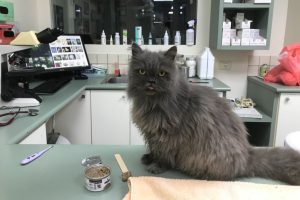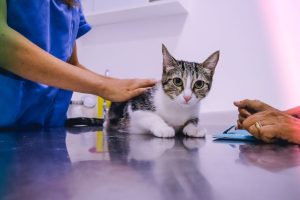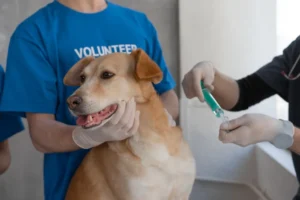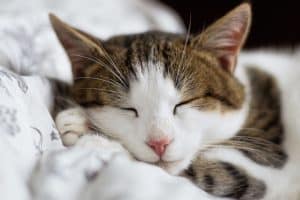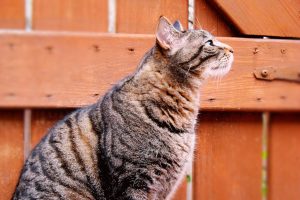Is your cat refusing vaccines? You’re not alone. It can be frustrating and concerning when your feline friend won’t cooperate during vaccination appointments. But fear not, there are reasons behind this behavior that can be addressed. Let’s explore why your cat may be refusing vaccines and how you can help them stay healthy.
Answer:
If your cat is refusing vaccines, it may be due to fear, stress, or a bad experience during a previous vet visit. It’s important to understand your cat’s behavior and work with your veterinarian to find a solution that works for both you and your furry friend.
Understanding Your Cat’s Behavior
Is your fuzzy feline acting like a master escape artist when it’s time for vaccinations? Understanding why your cat is refusing vaccines can help you address their fears and concerns. Cats are known for their independent and sometimes skittish nature, which can make vet visits a stressful experience. Your cat may be refusing vaccines due to fear of the carrier, anxiety in the unfamiliar veterinary office, or past negative experiences. Keep an eye on your furry friend’s body language and behavior to decipher their discomfort signals.
Building Trust with Your Cat
Building trust with your cat is essential to help them feel more at ease during vet visits. Before your next appointment, take small steps to help your cat associate positive experiences with their carrier. Leave the carrier out for your cat to explore, and offer treats and praise when they investigate. Additionally, creating a safe space with familiar scents in the carrier can help reduce stress during travel.
To further build trust, practice touching and handling your cat gently and regularly to desensitize them to physical contact. This can help reduce anxiety during exams and vaccinations. Remember, patience and consistency are key to strengthening your bond with your furry companion.
Pro Tip: Consider using pheromone products like Feliway to create a calming environment for your cat during vet visits. These products mimic natural feline pheromones and can help reduce stress and anxiety.
Creating a Calm Environment
Is your cat refusing vaccines? One possible reason could be stress. Cats are naturally wary of new environments and experiences, which can make trips to the vet anxiety-inducing. To help your feline friend feel more at ease, create a calm environment before, during, and after their vaccination appointment.
Firstly, ensure that your cat is in a familiar and comfortable carrier. Consider placing a familiar blanket or toy inside to provide a sense of security. Additionally, try to keep the carrier covered with a towel or cloth to create a cozy den-like space for your cat.
During the car ride to the vet, play calming music or use a pheromone spray designed to reduce stress in cats. Once at the vet’s office, request a quiet waiting area away from other pets to minimize your cat’s anxiety.
After the vaccination appointment, reward your cat with treats, playtime, or cuddles to create positive associations with the experience. By creating a calm environment, you can help your cat feel more relaxed and cooperative during their vaccinations.
Positive Reinforcement Techniques
If your cat is refusing vaccines, positive reinforcement techniques can be a game-changer. Instead of forcing your cat to cooperate, try using rewards to encourage good behavior during vet visits.
Before the appointment, practice handling your cat’s paws, ears, and mouth at home to desensitize them to touch. Reward your cat with treats or praise for tolerating these interactions. This will make the vet visit less stressful for your cat.
During the vaccination appointment, bring along your cat’s favorite treats or toys to distract and reward them. Praise your cat for staying calm and cooperative, and offer treats throughout the visit to reinforce positive behavior.
After the appointment, continue to reward your cat with treats and affection to create positive associations with the vet visit. By using positive reinforcement techniques, you can help your cat feel more comfortable and willing to cooperate during vaccinations.
Additional Insight: Consider using clicker training to train your cat to tolerate medical procedures like vaccinations. By associating the clicker sound with rewards, you can help your cat learn to stay calm and cooperative during vet visits.
Working with Your Veterinarian
If your cat is refusing vaccines, it’s essential to work closely with your veterinarian to address this issue. Your vet can help assess your cat’s fear or anxiety towards vaccinations and come up with solutions tailored to your feline friend. It’s crucial to communicate openly with your veterinarian about your cat’s behavior, so they can provide the best care possible. Together, you can develop a plan that accommodates your cat’s needs while ensuring they receive the necessary protection from diseases. Don’t hesitate to lean on your vet for support and guidance through this process. They are there to help both you and your cat navigate this challenge.
Vaccine Alternatives for Cats
If your cat is hesitant about traditional vaccines, consider exploring alternative options that may be more suitable for them. Non-adjuvanted vaccines, which are formulated without certain additives that can cause reactions in some cats, could be a safer choice for your furry companion. Additionally, alternative vaccination schedules may help reduce your cat’s anxiety and discomfort during the vaccination process. By discussing these alternatives with your veterinarian, you can find a solution that works best for your cat’s unique needs. Remember, the goal is to keep your cat healthy and protected while ensuring they feel safe and comfortable. Be proactive in exploring different vaccine options to find the best fit for your feline friend.
Additional Unique Insight: Remember that each cat is unique and may have different preferences or sensitivities when it comes to vaccines. Be patient and open-minded when exploring alternative options and trust your instincts as a pet parent to make the best decision for your cat’s well-being.
Addressing Health Concerns
Is your cat giving you the cold shoulder when it’s time for vaccines? Don’t worry, you’re not alone in this struggle. Cats can be finicky when it comes to medical procedures, but it’s crucial to understand the importance of vaccinations for their health. Vaccines help protect your furry friend from serious diseases that can be harmful or even deadly.
If your cat is refusing vaccines, it’s essential to address any concerns you may have. Talk to your veterinarian about the specific vaccines recommended for your cat based on their lifestyle and risk factors. You can also discuss alternative vaccine schedules or options to make the process easier for your cat.
Remember, patience is key. Work with your vet to create a low-stress environment during vet visits, use gentle handling techniques, and offer treats or comfort items to help your cat feel more at ease. By addressing your cat’s fears and working together with your vet, you can ensure that your feline companion receives the protection they need to stay healthy.
Fun Facts About Cat Vaccines
Did you know that cat vaccines are not just for kittens? Cats of all ages benefit from vaccinations to help protect them from diseases. Vaccines work by stimulating your cat’s immune system to recognize and fight off specific pathogens, reducing the risk of infection.
Here are some fun facts about cat vaccines: – Vaccines Tailored to Your Cat: Vaccines are customized based on your cat’s risk factors and lifestyle, ensuring they receive the protection they need. – Boosters for Long-Term Protection: Some vaccines require booster shots to maintain immunity against diseases over time. – Core vs. Non-Core Vaccines: Core vaccines are recommended for all cats, while non-core vaccines are based on individual risk factors.
By staying informed about the importance of vaccines and how they benefit your cat, you can make informed decisions about your pet’s healthcare. Remember, regular vaccinations are a key part of keeping your cat healthy and happy for years to come.
For more information on specific cat vaccines and their recommended schedules, check out this resource from the American Association of Feline Practitioners: Cat Vaccination Guidelines.
Alex, a passionate animal lover, has experience in training and understanding animal behavior. As a proud pet parent to two dogs and three cats, he founded AnimalReport.net to share insights from animal experts and expand his knowledge of the animal kingdom.


